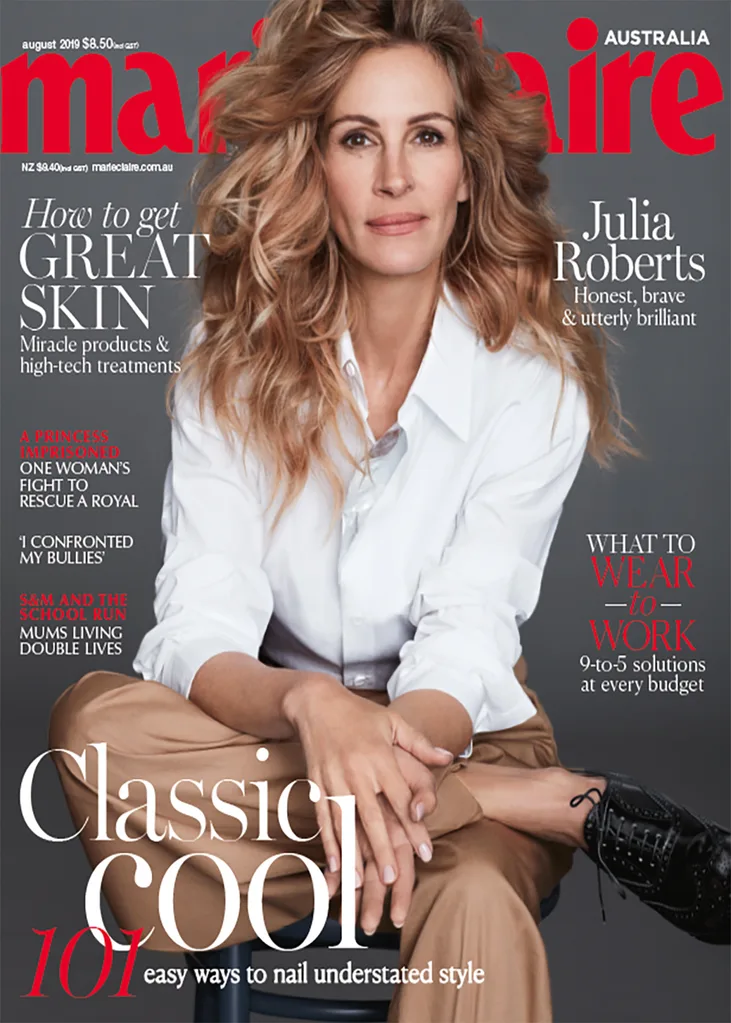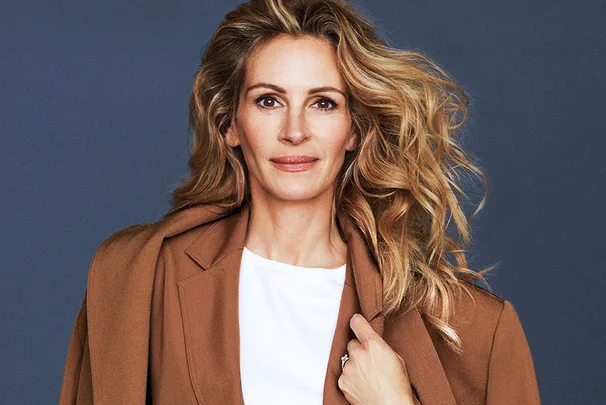Life is pretty good for Julia Roberts right now. Her Oscar-acclaimed career has afforded her the luxury of picking selective projects, and she’s successfully raising three children – with husband Danny Moder – away from Hollywood’s intrusive glare.
Following her big-hearted performance in last year’s emotional drama Ben Is Back and her role as a paranoid psychologist in the TV series Homecoming, Roberts is taking a moment to reflect on her stellar career.
“Things have changed a lot – it’s different now,” she says of the industry. “When I started, there wasn’t any social networks, the internet barely existed, people couldn’t take photos with their mobile phones. There were logical stages of career progression. You did a film, if it worked you’d have a chance to work again. If your second film was a success, you could get a better pay cheque and another new role. Now someone can come out of nowhere and achieve incredible things, which I imagine is very destabilising. Building a career was a lot more methodical 30 years ago.”

Having made a name for herself in blockbusters like Pretty Woman, Notting Hill and Erin Brokovich, Roberts has become more selective with her role choices over the years. “I have never hesitated to turn down projects I didn’t want to do, and I am grateful that I’ve had that freedom. There was a period when I was in Mystic Pizza, then Steel Magnolias with [director] Herbert Ross straight after, and Pretty Woman the next year. And in 1991, Flatliners with Joel Schumacher, Sleeping with the Enemy with [director] Joseph Ruben, and two other movies. Then I didn’t make any more films for two years. I really needed a break, and some time to make decisions,” says Roberts, now 51.
How does Roberts make those big career decisions after three-decades at the top of her game? “I pay even more attention [to my role choices] because we have a family [twins Hazel and Phinnaeus, 14, and Henry, 12] and it’s not just about me. My husband [a cinematographer] and I avoid working at the same time. So there are my projects, Danny’s projects, the kids’ school calendar – organisation is basically math,” she says. “I feel very lucky that I don’t have to work constantly. My mother worked full-time, 365 days a year, with only two weeks of vacation, and she took care of us – she had no choice. I have boundless admiration for those women and everything they have to do to make ends meet.”
Read the full interview in the August issue of marie claire – on sale Thursday.











